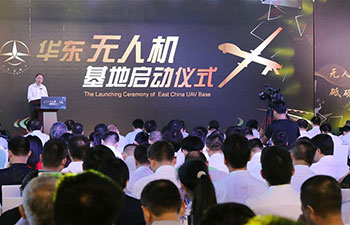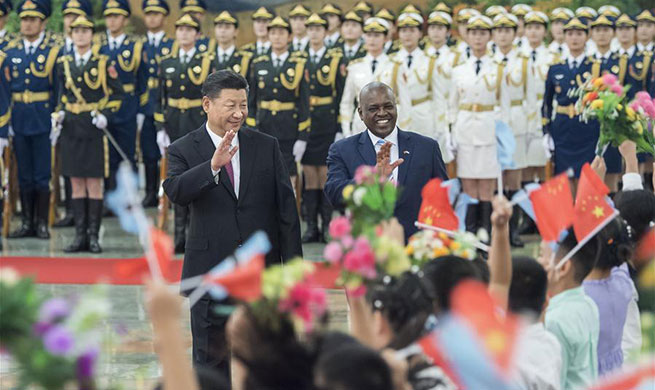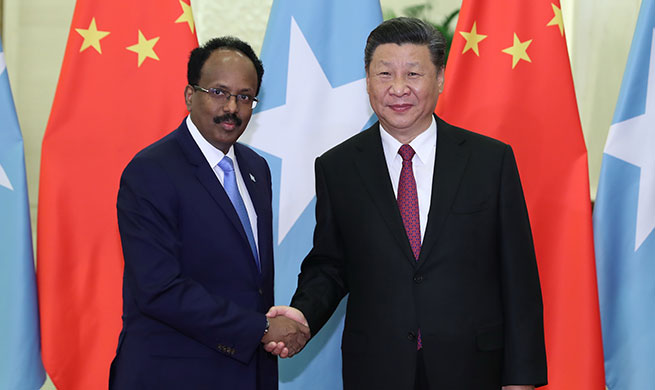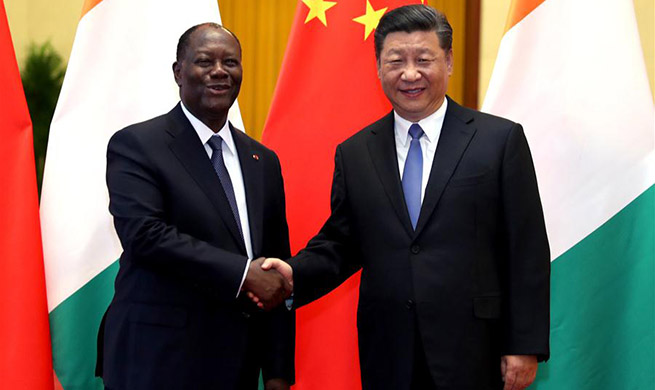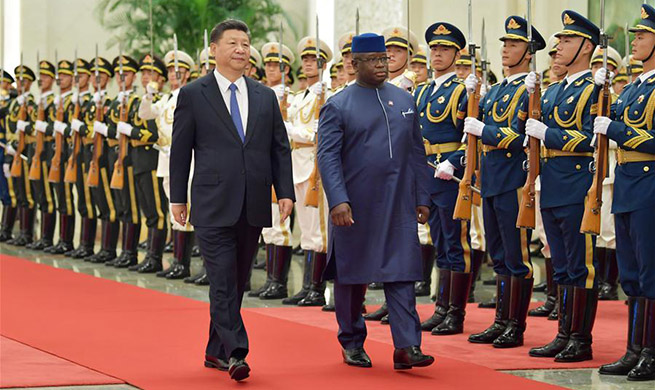By Stefania Fumo
VENICE, Italy, Aug. 31 (Xinhua) -- Italian director Paolo Genovese, whose movie Perfect Strangers was released theatrically in China earlier this year, made a surprise appearance at a Focus on China event at the Venice Film Festival on Friday.
Genovese's award-winning 2016 film about seven lifelong friends who decide to bare their secrets by exposing the contents of their smartphones in the course of a dinner party, was a commercial and critical success in Italy, where it won a David di Donatello, which is the Italian Oscar.
According to Variety film industry magazine it is performing well at the Chinese box office, where it opened at No. 5 in May and has since grossed over 8.5 million U.S. dollars, the best result for an Italian movie in China since Giuseppe Tornatore's Cinema Paradiso (1988).
"It was totally unexpected, and an honor and a privilege for my movie to be released theatrically in China," the 52-year-old Rome native told participants at the gathering of Chinese and Italian film industry professionals.
"Although our cultures, our languages and even our alphabets are so different, the magic, marvelous world of cinema united us," Genovese said.
"It doesn't matter what language you make a movie in," he added. "All you have to do is put subtitles on it and you can tell your story anywhere in the world -- even in China."
Also present was Chinese actress and producer Tao Hong, who brought Liu Kuo's animation movie The Wind Guardians for a market screening at the Venice Film Festival.
She said that while animation is still a niche genre, it has "infinite potential" in China, where the younger generations appreciate Japanese manga and cartoons in general.
"When you are an artist you can do whatever you want, but when you become a producer you have to think about the market and what the public wants," said Tao Hong.
However, she added, the public can be educated to appreciate different kinds of cinema. Genovese agreed with her, saying filmmakers must make an effort to speak to everyone, no matter their level of education.
"In order to reach international audiences a movie must be able to speak to everyone and be understandable to everyone -- young, old, rich, poor," he said.
Paolo Del Brocco, who is the CEO of the cinema division of RAI public broadcaster and who sat on the jury at the Beijing Film Festival last year, agreed.
"I like the concept of educating the public, which means investing in the contents of tomorrow, ones that can attract young people to see certain kinds of films," Del Brocco said.
He went on to cite Mexican director Alfonso Cuaron's Roma, which premiered at the Venice Film Festival on Thursday to critical and audience acclaim.
"(Roma) is a fantastic movie, which people of all ages should see," he said.
"People all over the world need stories about feelings, and cinema must tell stories, whether large or small, that have universal significance and can be enjoyed by the public anywhere."
There are 22 new movie theaters opening a day in China, and Italy-China co-production agreements are already in place, the Italian film industry executive said.
"Now we must fill those agreements with content -- we must make movies that can be enjoyed by two publics that are geographically so far apart, but that share the same human feelings," said Del Brocco in reference to Chinese and Italian moviegoers.
Friday's event took place on the second day of a three-day film industry series organized by Xinhuanet Europe and the Italian film industry association (ANICA) called Focus on China, now in its third edition.
Focus on China concludes Saturday with a Sino-Italian Co-Production Forum, to be followed by other industry conferences and a screening of The Wind Guardians by Liu Kuo.



